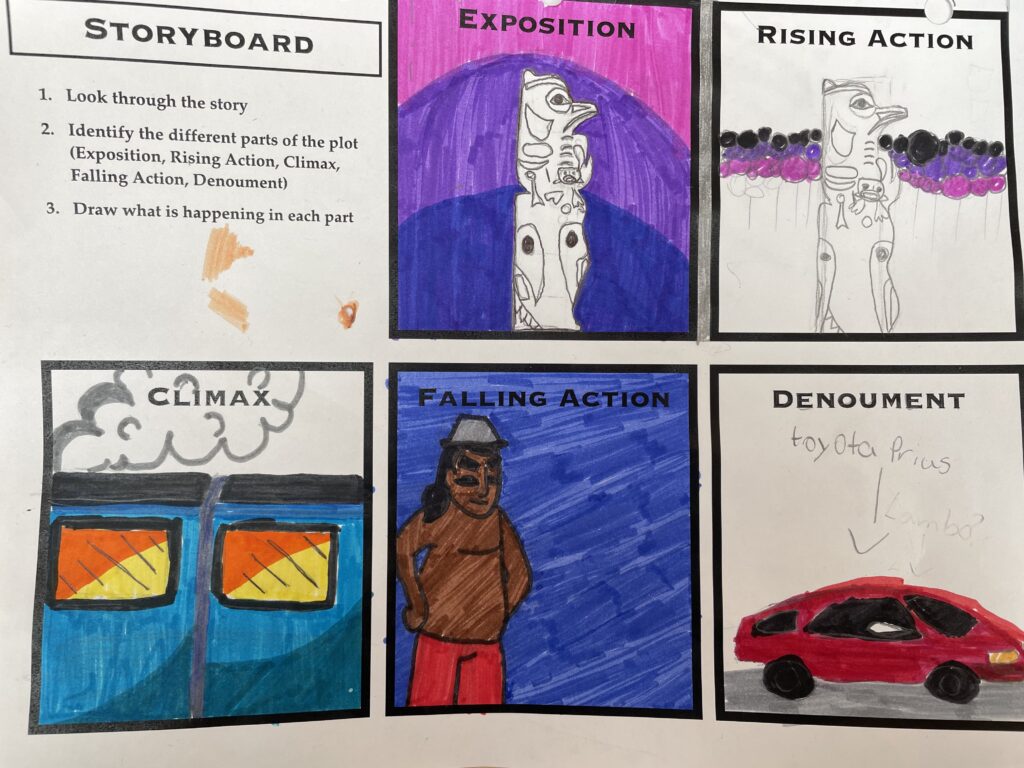Educators respect and value the history of First Nations, Inuit and Metis in Canada and the impact of the past on present and the future. Educators contribute towards truth, reconciliation and healing. Educators foster a deeper understanding of ways of knowing and being, histories, and cultures of First Nations, Inuit and Metis.
Incorporating Indigenous perspectives into the curriculum is essential to acknowledging Canada’s tragic colonial history, and to be a part of moving forward with reconciliation and the healing process.
Throughout each practicum experience I made it one of my major goals to honour the First Peoples Principles of learning by recognizing how it is a part of my teaching practice. I placed a strong focus on group learning, and experiential opportunities to help my students reach their learning goals.
My lesson focused on Bill Reid, a Haida Artist, was taught and planned with the intention of honouring Indigenous storytelling, and teaching my students about traditional territory. During this lesson we discussed the territory that we work and play on (the ancestral lands of the Lheidli T’Enneh) and looked at a map of British Columbia that showed the different nations and territories across the province. For the storytelling piece of our lesson, we looked at Bill Reid’s famous unfinished story called The Ravens Call. The story had been adapted into an animation, and the students were responsible for watching the story, breaking down the plot, and working in small groups to come up with an original ending. Afterwards, we discussed the role of oral storytelling, and the students had the opportunity to share their endings aloud with their classmates. The students were also responsible for creating a storyboard of the entire plot, which was partially Bill Reid’s and partially their own.

Student example of The Ravens Call Storyboard. This includes the original ending that the student’s group came up with.
